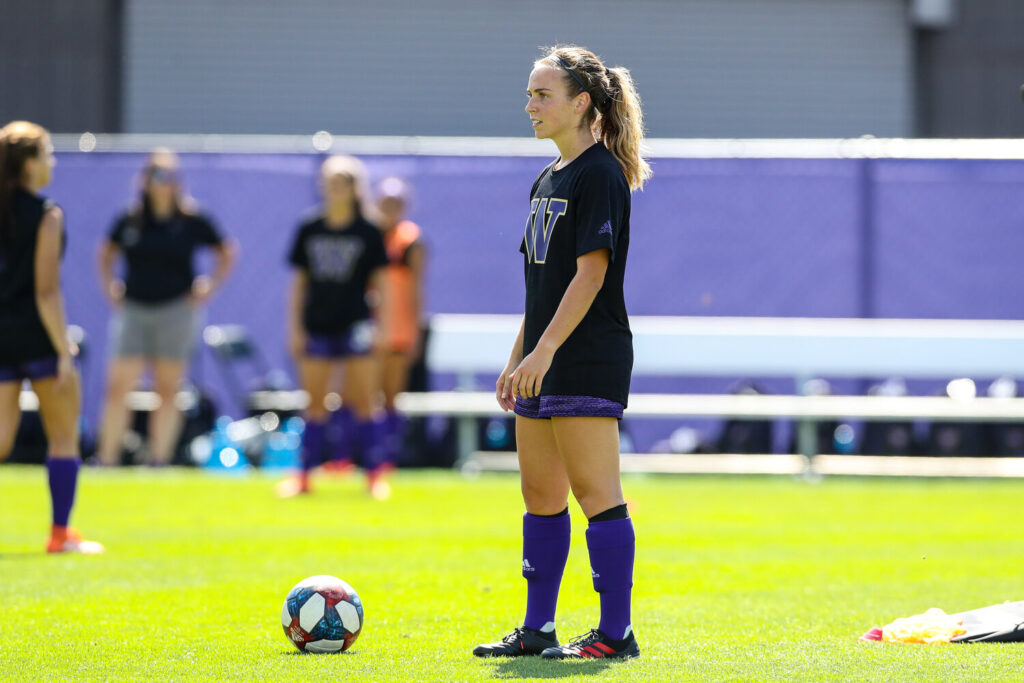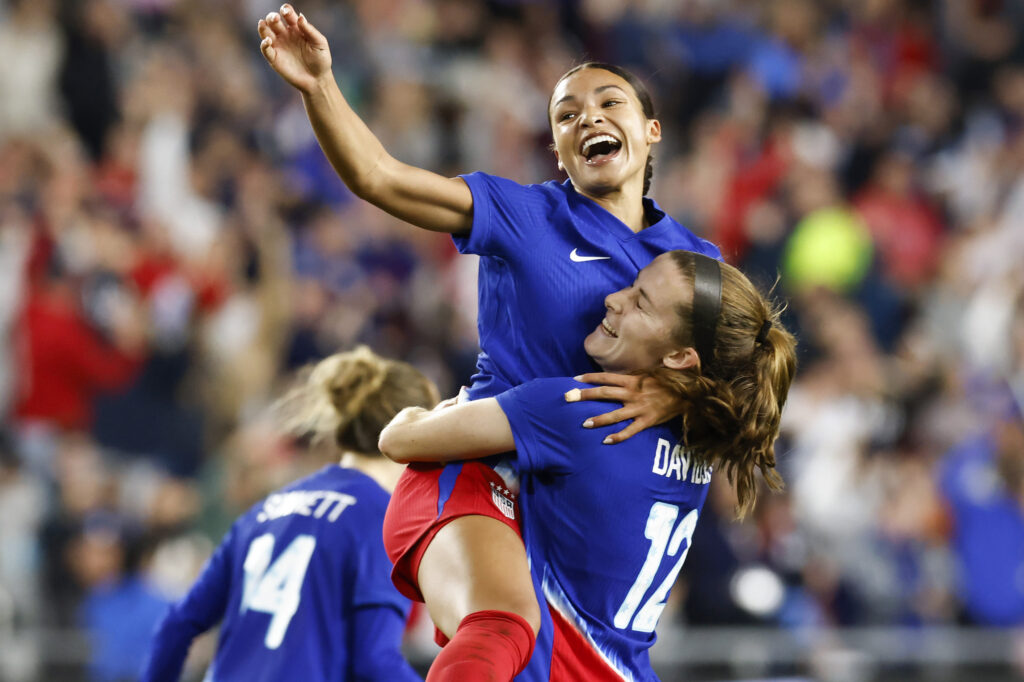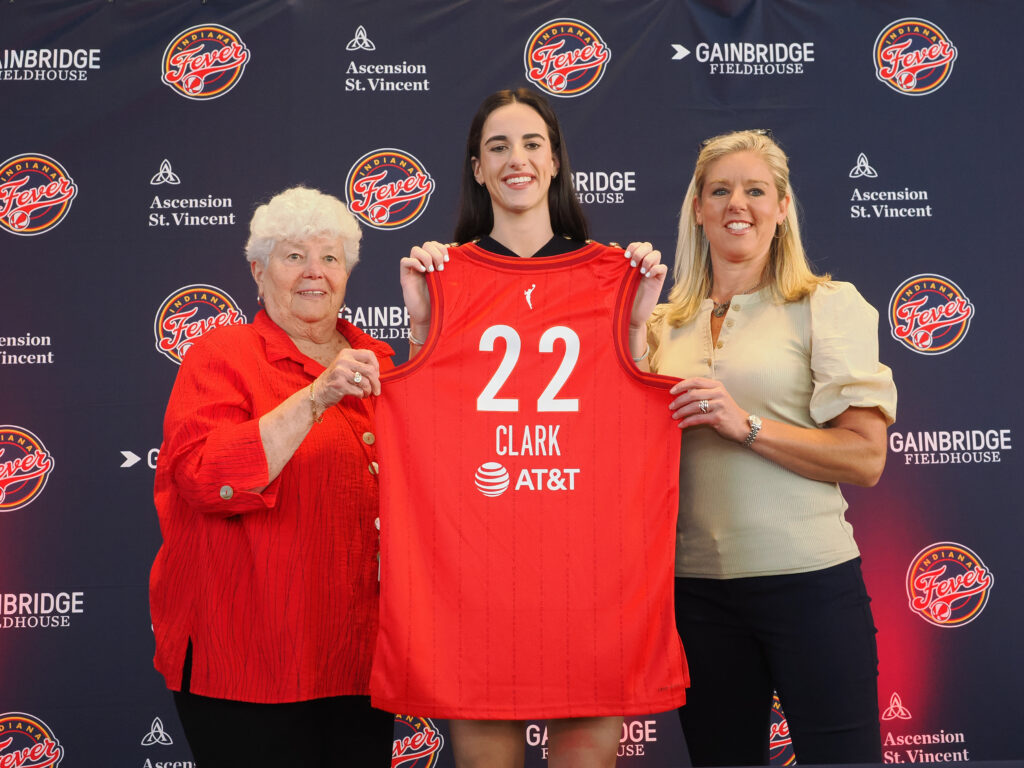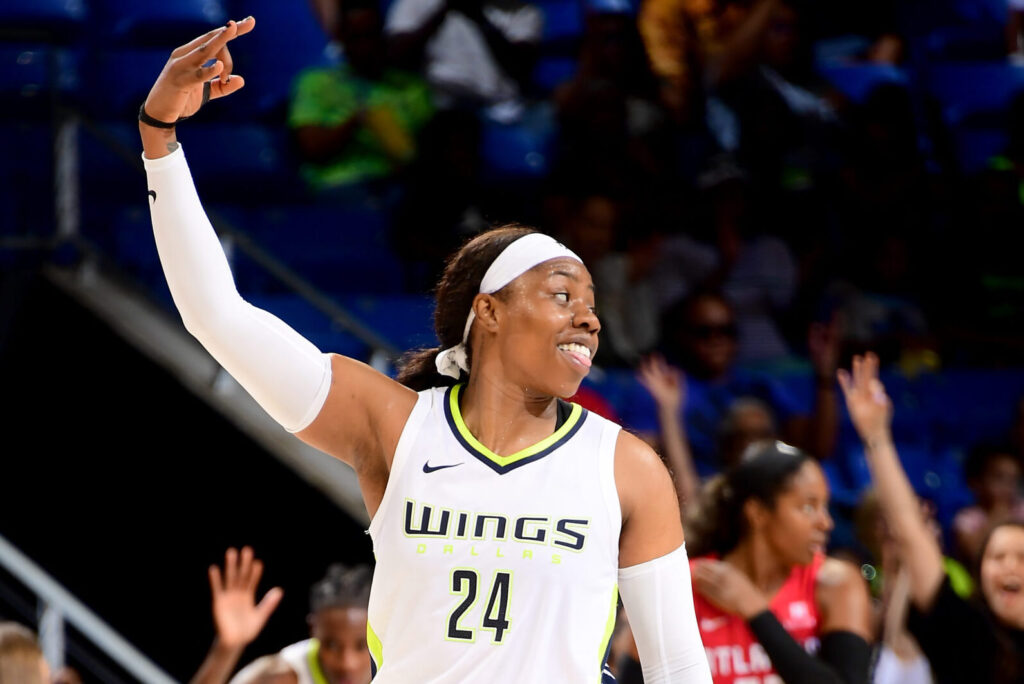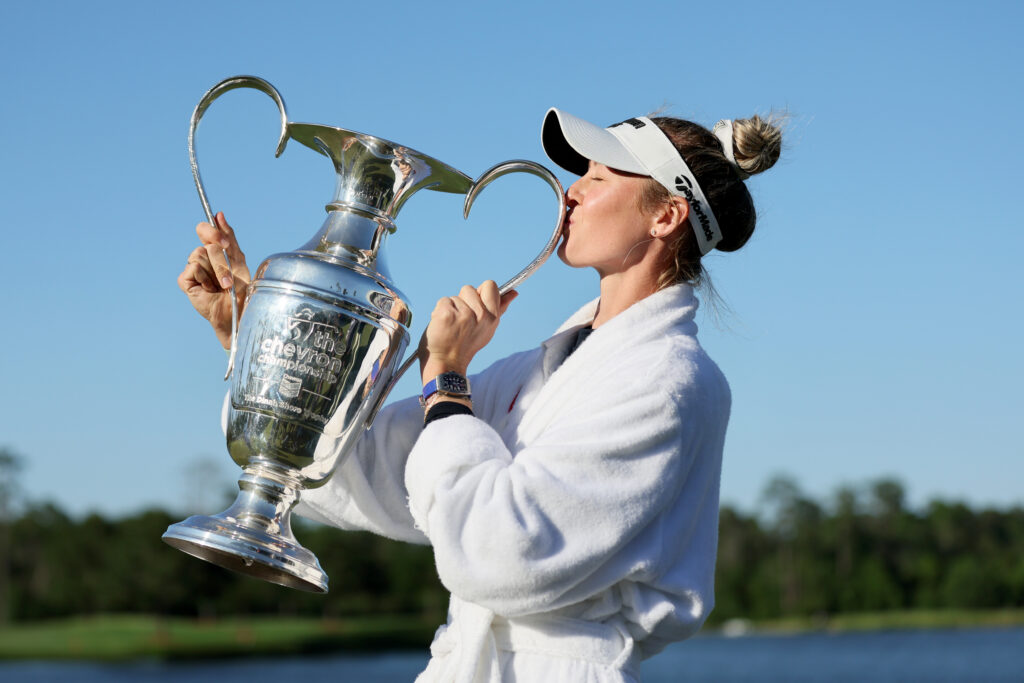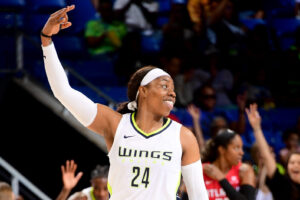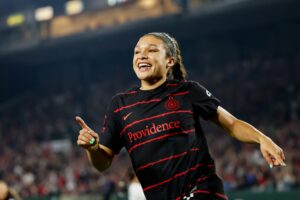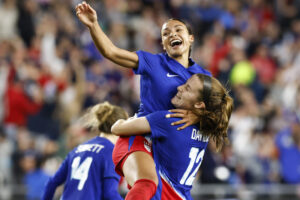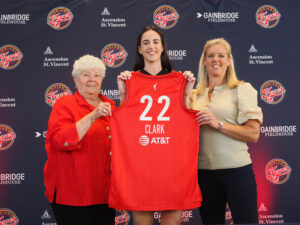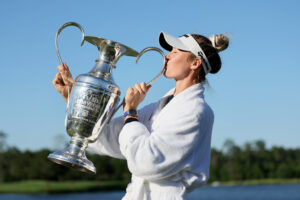Claudia Longo is a redshirt sophomore at the University of Washington where she plays midfield for the women’s soccer team. Originally from Issaquah, Washington, Longo won two state championships with her high school team before being diagnosed with multiple sclerosis during her senior year. Below, she talks with JWS about her career in soccer thus far, her diagnosis, and how she continues to persevere through adversity.
Since you are from the area, was University of Washington always where you knew you wanted to go to school?
Yeah, I mean, I grew up a U-Dub [UW] fan — it was everywhere in the neighborhood and U-Dub is literally in my backyard. So it was pretty cool to receive that offer. But in the beginning, I was looking to go explore other parts of the country. I was definitely looking to “get out,” but once I visited the campus, took the tour, and met the coaches and players, I was like, “Okay, this is it. This is where I want to be.”
Your high school was pretty competitive, too. I read that you guys won the state championship. How was that?
It was, and still is, a great program and it has been pretty successful for years now. Tom Bunnell was our head coach — he is actually retired now but he was great. He won five state championships while he was there. And then actually, when I was there, we won two state championships. It could have been three, I still regret it, but that’s all right. But yeah, it was really fun to play for that squad, too. I actually ended up playing at U-Dub with some of my ex-squad teammates, which was super fun.
When did you start noticing your MS symptoms?
I first started getting symptoms a couple of years prior to my senior year of high school, but I had no idea what was going on. During my junior year, I went completely numb and had tingling in my legs for a few weeks. I just thought, “Okay, maybe I’m over-training or whatever.” I remember it was mid-game. And I was like, “Okay, my cleats must be too small.” I literally went out, changed my cleats, wore somebody else’s bigger cleats, came back on and it wasn’t helping. My mom took me in to get some blood tests done. Nothing came back. So we were like, “Okay, let’s take a couple weeks off and see what happens.”
I ended up getting a bit better over the course of several months and I was even able to play my senior year. I felt good, but I was getting super tired after my games. I was used to playing the full 90 minutes, but it felt so different. I was throwing up after games, it was just weird. After we won the state championship, I took a couple of weeks off, but then I started training before and after school. I did that for a couple of months and then I started experiencing way more fatigue, a lot of numbness and tingling. I had this thing where when I looked down, I would get electric shocks running from my back to my legs. That was the sign to my parents that, “Okay. Something’s not right here.” We went and saw a neurologist and he ordered several MRIs. That’s when we found out that I had MS. I was diagnosed in March of my senior year. That was a month and a half before I was to graduate and move to U-Dub.
Were you able to finish out your senior spring of soccer or were symptoms too bad at that point to continue?
Yeah, I was able to finish it out. I remember in the quarterfinal game, I just laid down on the bench for all of halftime and thought, “What is happening?” But I was able to kind of regather myself when that would happen. It mostly happened in the postseason so, obviously, there was a lot of adrenaline and other things playing into it. I was able to grind it out then, but a few months later it was to a point where I just couldn’t keep pushing through.
Once you were diagnosed, did the doctors tell you that you wouldn’t be able to play sports at all?
It was obviously a shock to the system. I really had no idea what was coming, but I was under the care of a great doctor. She told me it as it was, she said, “Yeah, you have MS. You have these symptoms.” But she was confident that I would be able to get back on the field one day. Obviously, it wasn’t going to be easy, but she said that we could make it happen. So that was really reassuring to hear.
Did you have a lot of appointments thereafter?
Yeah, and I take medication. There is no cure for MS though. You take these medications to stop the progression, basically to stop getting these new lesions in your brain and your spine. Ultimately the goal is that, yes, I’m going to have these symptoms, but let’s prevent any other symptoms in the future from flaring up. So far, I’ve been stable. I’m on great medications that allow me to continue playing soccer, which is awesome.
Congratulations to @ClaudiaLongo99 on earning the 2019 Wayne Gittinger Inspirational Award!
— Washington Women's Soccer (@UW_WSoccer) January 21, 2020
>>https://t.co/NaAy8pEDae#GoHuskies pic.twitter.com/eaE2anLcYk
You were diagnosed your senior year of high school and then you head off to college. What was going through your mind at that point?
I’ll be the first to say it was definitely tough. My initial response was to go on the most aggressive treatment and keep training and doing what I was used to. That was tough. I was doing infusions once a month that made me feel pretty sick. I was throwing up nearly every day and getting pretty bad migraines. But I was still training and pushing through because I wanted to move in for preseason and be on the field. Ultimately, I did move in for my freshman season and I tried to play a couple of weeks of the preseason, but at the end of the day, it wasn’t what my body needed. And so, after pushing through for about six months, I ended up taking a quarter off, moving back home and just taking care of my body.
Taking a quarter off to focus on your health must have been tough. How did you persevere during that time?
My coaches and my teammates were so incredible through all of it. When I first got diagnosed, I reached out to my coach, Lesle Gallimore. She got all of our staff together for a meeting and went over what it was going to look like for me and just made it clear that she was going to do whatever it took to keep me on the team. My teammates all rallied around me, too. So, it’s been really nice to have such a supportive team to help get me through it.
Did you take time off from classes too, or just training?
I actually ended up taking fall quarter completely off from school and soccer. I moved back home and took some time to really process what this new normal was going to look like. I changed my medication to something that was a little less aggressive and that ended up working out really well. I changed my diet. I found new forms of exercise that made me feel good and not like I had to throw up every second. It was tough to not be with the team and not be in college for my freshman year, but it was definitely a blessing in disguise.
When did you return back to school?
I went back for winter quarter, but I only went back for school. I wasn’t ready to play soccer yet. During spring quarter, I slowly started to add soccer back into the mix while I was practicing with the team. I practiced maybe two or three times a week and slowly worked my way back into what I was used to. Lesle coached us through that spring and then also last fall. This past winter is when our new coach, Nicole Van Dyke, came in and took over.
When you did return to soccer, how did it feel?
I still remember to this day, the first time that I trained by myself right before I went back spring quarter to start training with the team. I didn’t care about anything else. I was just so happy to be on the field and to be touching the ball and to have my cleats back on. That was a moment that I had been waiting for for over a year and it just felt so good. At my first practice with the team, I was just stoked to be there. I remember looking at my coach, Amy Griffin, and I just started tearing up. I had no idea what the next several months or years were going to look like, but I was so happy to finally be back with the team. Again, it wasn’t easy. I had a lot of adjusting to do and I was still not feeling great. I was off of the old medication, but I still had some MS symptoms that were getting in the way. It was tough, spring quarter was really tough. I had to learn to adapt to what the new normal was on the field, if that makes sense.
How do you think your experiences overcoming adversity at such a young age affected the athlete and person you are today?
It has really made me appreciate the sport. I’m standing here talking about my experience being a soccer player with MS. There are plenty of people out there with MS who aren’t as fortunate as me. I think each day is a blessing that I get to continue saying that I’m playing the sport. The adversity has really put, not even the sport, but life in perspective for me.
What are your personal goals both in soccer and outside of soccer?
Last year, I was able to play in a couple of games, which was super cool. I’ve had multiple conversations about this with my coaches. They know that I hold myself to almost too high of a standard, but I would definitely love to get back out on the field, see some more playing time and have a bigger impact on my team — both on and off the field, whatever form that looks like.
How would you describe yourself as a player?
I play midfield, so a big part of my game is vision. I like to see myself as a link player. And so one thing that was tough when I came back was I would get these balls in the midfield, but if I turned my shoulder too much or if my body got overheated, I started to have blurry vision and I would get dizzy. That was really tough because I felt like when the ball was at my feet, I had lost that innate vision that I felt like I had played with for so long. Now, I’m working on ways to play smarter. That doesn’t mean that I’m going out on the field and working on checking over my shoulder for an hour — that’s not going to help me. Maybe it’s watching more film instead, so that I’m relearning that vision without having to make my symptoms worse, if that makes sense. My new coach, Nicole, doesn’t treat me like I’m a kid with MS. She holds me to the same standards that she holds everyone else. And if I make a bad pass, she’s on me. She’s not going to ease off because I couldn’t check my shoulder. My coaches keep on pushing me and I think that’s huge.
